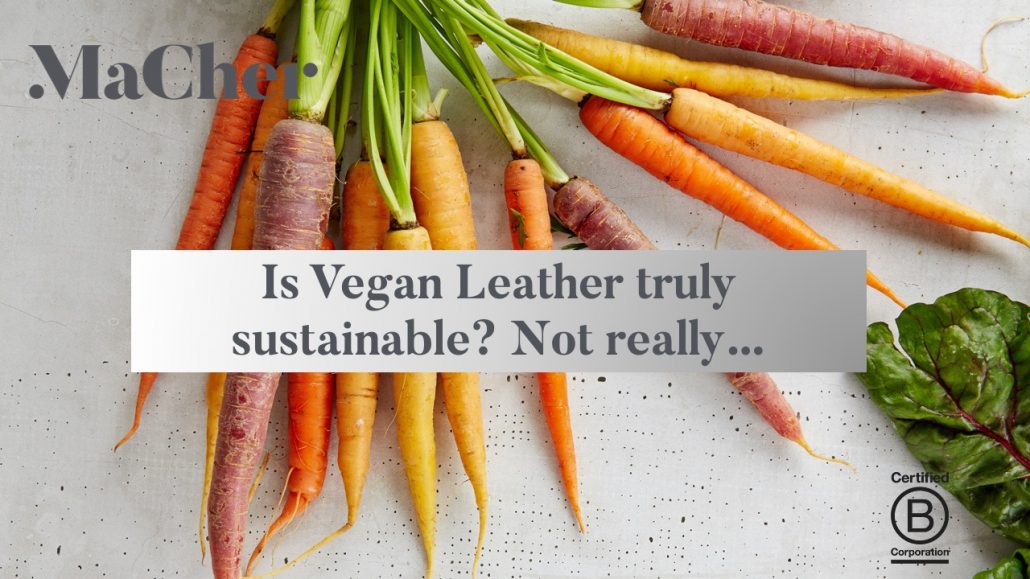Veganuary, a campaign to get people to give up meat and dairy for the month of January is slowly catching on in the US. The organizers say that plant-based foods are better for the environment, our health and for the animals. In the manufacturing world, we’re starting to see more products labelled as made with ‘vegan leather’. Not all of these labels are equal however.
We thought it was worth digging a little deeper into what vegan leather actually is…
What is vegan leather?
“Vegan leather” describes materials with a leather-like finish and leather properties, that contain no animal-based products. Some labels further qualify material as “cruelty free vegan leather”. This guarantees no harm to animals in the making or testing of the product.
Many vegan leathers come from fossil-fuels
Many vegan leathers come from fossil-fuel based inputs or include plasticizer substrates. Not only are these materials non-renewable, but they are also difficult to recycle, and some are harmful to our health.
Poly-vinyl chloride (PVC) is one of the most common materials labelled as “vegan leather”. It comes from non-renewable, petrochemicals mined from our earth and is one of the most difficult materials in the plastics family to recycle. PVC can also contain high levels of phthalates, which are linked to endocrine disruption, cancer, and other human health issues.
What better material choices can I make that are still vegan?
Our number one recommendation is renewable, organic, or recycled fibres which include organic or recycled cotton, hemp, or linen. Bio-synthetics like lyocell or modal, are also good options. These come from responsibly managed forests.
What is has a leather-like finish but less dependent on fossil fuels?
Currently there are some great options that still perform like leather but have a reduced impact and reliance on petrochemical feedstock. These include:
- materials from agro-waste from the pineapple, cactus (agave) and coconut industries,
- bio-based materials like mushroom leather, and,
- recycled materials like RPVB (RPVB or Recycled Poly Vinyl Butyral repurposed material sourced from safety glass), or FSC certified washable paper.
We know that these materials are imperfect replacements. However, they bridge the gap from virgin fossil-fuel based material to options made from either waste streams or from responsibly sourced virgin materials.
MaCher has been working to use better materials for a long time. We don’t have all the answers, but we are happy to help share our experiences to help you in your journey.
MaCher – Make Better Things to Make Things Better


